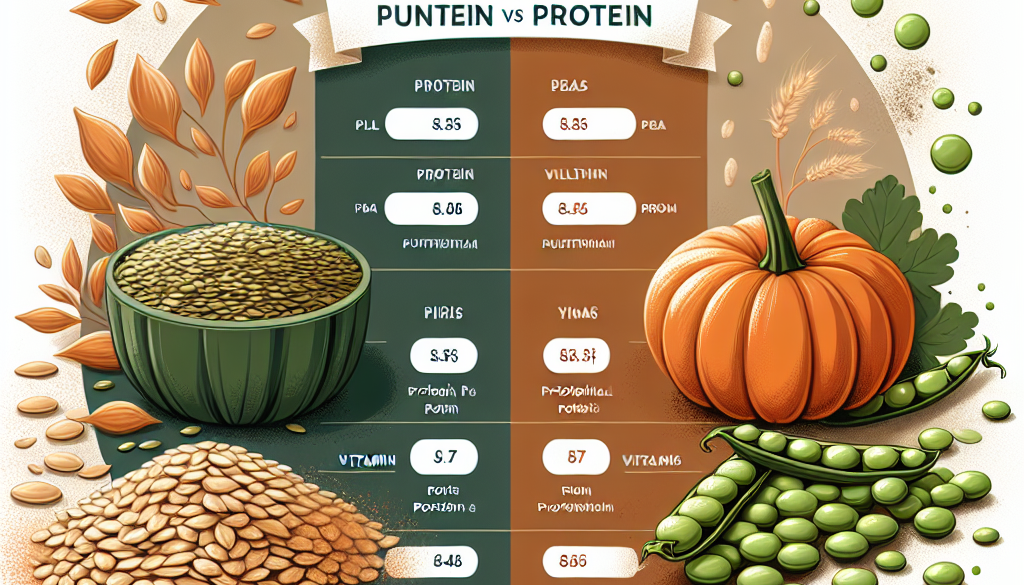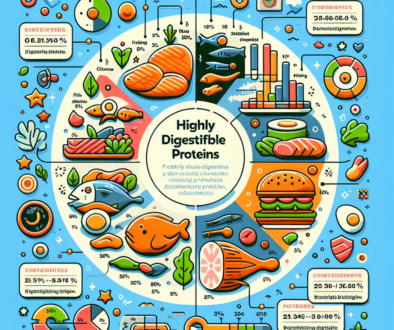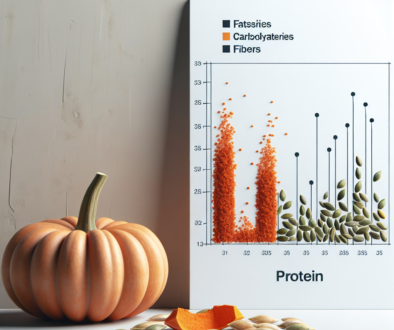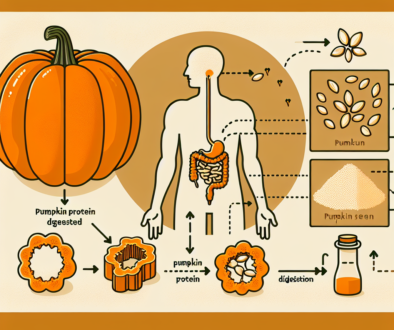Is Pumpkin Seed Or Pea Protein Better?
-
Table of Contents
- Pumpkin Seed vs. Pea Protein: Which is the Superior Plant-Based Protein?
- Understanding Plant-Based Proteins
- Nutritional Profile of Pumpkin Seed Protein
- Nutritional Profile of Pea Protein
- Comparing Digestibility and Absorption
- Impact on Muscle Growth and Recovery
- Environmental and Sustainability Considerations
- Flavor and Culinary Versatility
- Conclusion: Weighing Your Options
- Discover ETprotein’s Premium Plant-Based Proteins
Pumpkin Seed vs. Pea Protein: Which is the Superior Plant-Based Protein?
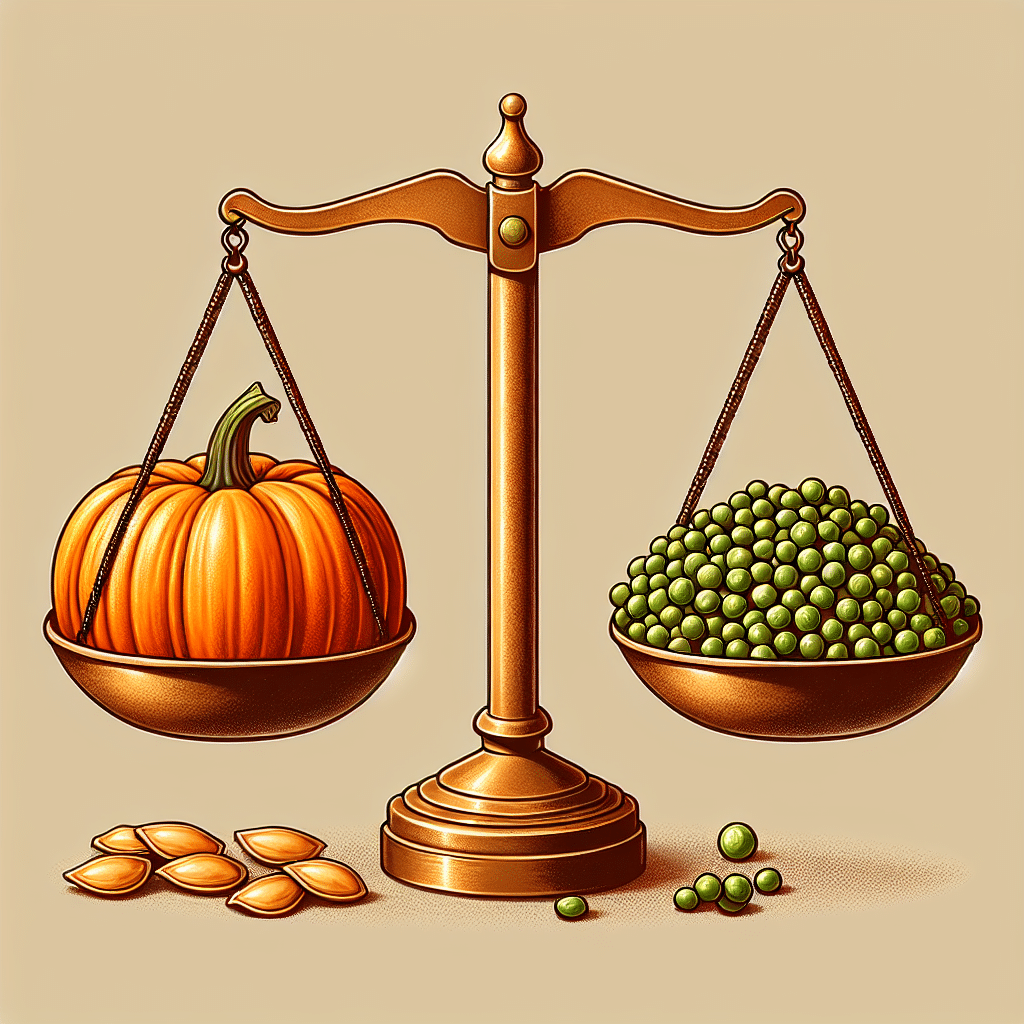
As the demand for plant-based proteins continues to rise, consumers are often faced with the challenge of choosing between the myriad of options available on the market. Among these, pumpkin seed and pea proteins have emerged as popular choices for those seeking a nutritious alternative to animal-derived proteins. This article delves into the benefits and drawbacks of both pumpkin seed and pea proteins, providing a comprehensive comparison to help you make an informed decision.
Understanding Plant-Based Proteins
Before we compare pumpkin seed and pea proteins, it’s essential to understand what sets plant-based proteins apart from their animal counterparts. Plant-based proteins are derived from various sources such as legumes, grains, nuts, and seeds. They are often favored for their sustainability, lower environmental impact, and suitability for those with dietary restrictions or ethical concerns regarding animal products.
Nutritional Profile of Pumpkin Seed Protein
Pumpkin seed protein is made from the cold-pressed seeds of pumpkins. It is known for its high protein content and rich supply of micronutrients, including magnesium, zinc, and iron. Pumpkin seed protein is also a complete protein, meaning it contains all nine essential amino acids that the body cannot produce on its own.
- High in antioxidants
- Contains heart-healthy fats
- May have anti-inflammatory properties
Nutritional Profile of Pea Protein
Pea protein is extracted from yellow split peas and has gained popularity due to its high protein content and hypoallergenic nature. It is also a complete protein and is particularly rich in branched-chain amino acids (BCAAs), which are crucial for muscle building and repair.
- Low in allergens
- Rich in BCAAs
- Supports muscle growth
Comparing Digestibility and Absorption
When it comes to digestibility, both pumpkin seed and pea proteins are generally well-tolerated. However, pea protein may have a slight edge due to its smoother texture and less gritty mouthfeel, which can be more palatable for some users. Additionally, the digestibility of pea protein is comparable to that of dairy proteins, making it an excellent option for those seeking a plant-based alternative to whey or casein.
Impact on Muscle Growth and Recovery
For athletes and fitness enthusiasts, the ability of a protein to support muscle growth and recovery is a critical factor. Pea protein’s rich BCAA content makes it a strong contender for promoting muscle synthesis. Pumpkin seed protein, while complete, has lower levels of BCAAs, which may make it slightly less effective for muscle-building purposes.
Environmental and Sustainability Considerations
Both pumpkin seed and pea proteins have a lower environmental footprint compared to animal-based proteins. However, the production of pea protein is often more scalable and may require less water and land usage than pumpkin seed protein. This makes pea protein a more sustainable choice for those concerned about the environmental impact of their dietary choices.
Flavor and Culinary Versatility
The flavor profile of a protein powder can significantly influence its versatility in recipes. Pumpkin seed protein has a distinct nutty taste, which can complement certain dishes but may be overpowering in others. Pea protein, on the other hand, has a more neutral flavor, making it easier to incorporate into a variety of foods and beverages without altering their taste.
Conclusion: Weighing Your Options
In conclusion, both pumpkin seed and pea proteins offer unique benefits and can be excellent additions to a balanced diet. Pumpkin seed protein stands out for its micronutrient content and potential health benefits, while pea protein shines in terms of muscle-building support and environmental sustainability. Ultimately, the choice between the two will depend on your individual dietary needs, taste preferences, and environmental considerations.
For those seeking a versatile, muscle-supporting protein with a minimal environmental impact, pea protein may be the better option. However, if you’re looking for a nutrient-dense protein with additional health benefits, pumpkin seed protein could be the way to go.
Discover ETprotein’s Premium Plant-Based Proteins
If you’re in search of high-quality plant-based protein options, look no further than ETprotein. Their extensive range of organic vegan proteins, including both pumpkin seed and pea proteins, caters to various dietary preferences and nutritional requirements. With a commitment to non-GMO, allergen-free products and a neutral taste profile, ETprotein ensures that you can enjoy the benefits of plant-based proteins without compromising on flavor or quality.
Whether you’re formulating sports nutrition supplements, developing health and wellness products, or simply looking to enrich your diet with plant-based proteins, ETprotein has you covered. Their expertise in exporting and delivering tailor-made protein powders and nutritional supplements makes them a trusted partner for your protein needs.
Choose ETprotein for your protein requirements and join the ranks of leading global food and beverage brands that rely on their exceptional products and services.
About ETprotein:
ETprotein, a reputable protein and L-(+)-Ergothioneine (EGT) Chinese factory manufacturer and supplier, is renowned for producing, stocking, exporting, and delivering the highest quality organic bulk vegan proteins and L-(+)-Ergothioneine. They include Organic rice protein, clear rice protein, pea protein, clear pea protein, watermelon seed protein, pumpkin seed protein, sunflower seed protein, mung bean protein, peanut protein, and L-(+)-Ergothioneine EGT Pharmaceutical grade, L-(+)-Ergothioneine EGT food grade, L-(+)-Ergothioneine EGT cosmetic grade, L-(+)-Ergothioneine EGT reference grade and L-(+)-Ergothioneine EGT standard. Their offerings, characterized by a neutral taste, non-GMO, allergen-free attributes, with L-(+)-Ergothioneine purity over 98%, 99%, cater to a diverse range of industries. They serve nutraceutical, pharmaceutical, cosmeceutical, veterinary, as well as food and beverage finished product distributors, traders, and manufacturers across Europe, USA, Canada, Australia, Thailand, Japan, Korea, Brazil, and Chile, among others.
ETprotein specialization includes exporting and delivering tailor-made protein powder and finished nutritional supplements. Their extensive product range covers sectors like Food and Beverage, Sports Nutrition, Weight Management, Dietary Supplements, Health and Wellness Products, and Infant Formula, ensuring comprehensive solutions to meet all your protein needs.
As a trusted company by leading global food and beverage brands and Fortune 500 companies, ETprotein reinforces China’s reputation in the global arena. For more information or to sample their products, please contact them and email sales(at)ETprotein.com today.

